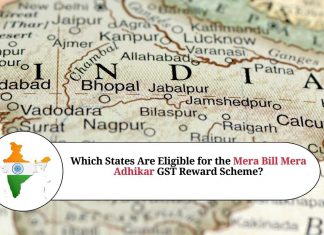Article Content:
- What is Gratuity?
- What is the Gratuity Act, 1972?
- When you will receive Gratuity?
- Different categories to calculate the gratuity amount
- How to Calculate Gratuity
- Gratuity calculation for those who do not come under Gratuity Payment Act
- Gratuity calculation in case of an employee is dead
- How Gratuity is Paid
- Tax on Gratuity Payment
What is Gratuity?
Gratuity is a cash benefit provided by the employer to an employee in return for services offered by his/her to the company. Companies offer Gratuity to those employees, who work for 5 or more years in the company. Gratuity offer usually at the time when the employee resigned from his job after 5 years, or at the time of retirement of an employee, etc.
The employer calculates gratuity through a specific formula or even can pay higher than the calculated amount.
What is the Gratuity Act, 1972.?
The payment of Gratuity Act is an act to provide a scheme for payment of gratuity to an employee working factories, companies, mines or shops etc, it is sort of retirement benefits which is intended to help their employees financially.
This Act was passed on 21 August 1972 by Indian Parliament.
Important Points related to Gratuity:
- The Employer can reject payment of Gratuity in some cases.
- Gratuity up to Rs. 20 Lakh is exempt from Tax.
- Contractual employees hired by companies are not eligible to receive Gratuity payment even after they work for more than 5 Years.
When you will receive Gratuity.?
These are the situation when you will receive the gratuity payment:
- When you resigned from your job after completing 5 years in the company.
- When you get retired from your job.
- When you are at the age of retirement (superannuation).
- When you are unable to offer your services to the company in cases like accident, sickness or death.
The Payment of Gratuity Act has two different categories to calculate the gratuity amount:
-
Cover Under Gratuity Payment Act.
If the organization employs at least 10 employees on a single day in a Year. Then all employees working under this organisation will be covered under the gratuity payment act. Once the organization comes under this act, then the organization will always remain covered under this act if the number of employees decreased as well.
-
Not Cover Under Gratuity Payment Act.
If the organization employs less than 10 employees on a single day in a Year, then this organization will not cover under gratuity payment act. But this doesn’t mean that the employer is restricted to not to pay gratuity.
Calculation of Gratuity
As per the Gratuity Act, there is no specific rule or fixed percentage approach to calculate gratuity. An employer can use a formula-based calculation to calculate gratuity or in some cases pay higher than the calculated amount.
As mentioned above private-sector employees, gratuity calculation is done on basis two categories:
- Cover Under Gratuity Payment Act.
- Not Cover Under Gratuity Payment Act.
Let’s understand how to calculate gratuity under these categories.
Gratuity calculation for those who come under The Gratuity Payment Act.
In this approach, gratuity is calculated based on 15 days of last drawn salary for each completed year of service or part thereof in excess of six months.
Formula to calculate gratuity under this category:
(15 x Salary x Working Years) Divide by 26
Here, Salary = the last drawn basic salary (salary of last 10 Months) + D. A. (dearness allowance) + Commission if any, And Working Years represent total tenure of working.
In this formula, if an employee worked more than 6 months in a year then it is considered as 1 year. So, if an employee has worked for 5 years 10 months in an organisation, his total tenure will be calculated as 6 years.
Suppose Atul basic pay including (dearness allowance) is Rs 80,000 per month and he has worked for 10 years and 7 months.
(15 X 80,000 X 11) / 26 = Rs. 5.07 lakh
According to this approach, the gratuity payment of Atul is Rs. 5.07 lakh.
Gratuity calculation for those who do not come under Gratuity Payment Act.
Those employees who come under this category are also eligible to receive gratuity benefits but in this, there is a slightly different approach to calculate Gratuity Payment.
Let’s check how to calculate gratuity under this category.
Formula to calculate gratuity under this category:
(15 X Salary x Working Years) divided by 30
Here, Salary = the last drawn basic salary (salary of last 10 Months) + D. A. (dearness allowance) + Commission if any, And Working Years represent total tenure of working.
In this formula, if an employee worked more than 6 months in a year then it is considered as 1 year. So, if an employee has worked for 5 years 10 months in an organisation, his total tenure will be calculated as 6 years.
Suppose Atul basic pay including (dearness allowance) is Rs 80,000 per month and he has worked for 10 years and 7 months.
(15 X 80,000 X 11) / 30 = Rs. 4.40 lakh
According to this approach, the gratuity payment of Atul is Rs. 4.40 lakh.
Gratuity calculation in case of an employee is dead
In case the employee is deceased while providing his services to the company then the payment of gratuity is based on the length of the tenure, they provided.
According to this gratuity is calculated:
| Qualifying service | Rate |
| Less than a year | basic pay x 2 |
| If more than 1 year but less than 5 years | basic pay x 6 |
| If more than 5 years but less than 11 years | basic pay x 16 |
| If more than 11 years but less than 20 years | basic pay x 20 |
| 20 years or more | Half of basic pay for every completed six- month period. It is subject to a maximum of 33 times of basic pay |
How Gratuity is Paid.?
The Employer needs to pay a gratuity amount, within 30 days after the retirement, resignation etc by the employee.
Steps involved in gratuity payment:
- An employee can send an application to the organisation regarding the gratuity.
- When the Organisation receives the application, they calculate the gratuity amount according to their category.
- Then the employer disburses the gratuity amount and sends the details to the employee.
Tax on Gratuity Payment
- Those who come Under the Payment of Gratuity Act will get the benefits of tax exemption up to Rs. 20 lakhs.
- Those who come Under the Payment of Gratuity Act will get the benefits of tax exemption up to Rs. 10 lakhs.
- Gratuity received by government employees at the time of superannuation, retirement etc is fully exempt from tax.













































